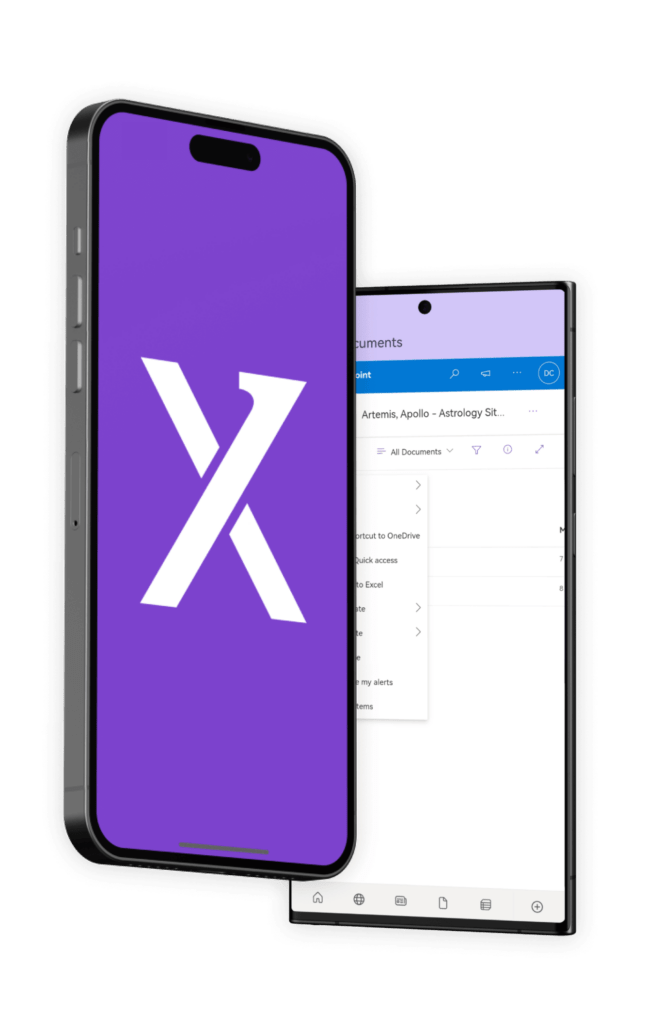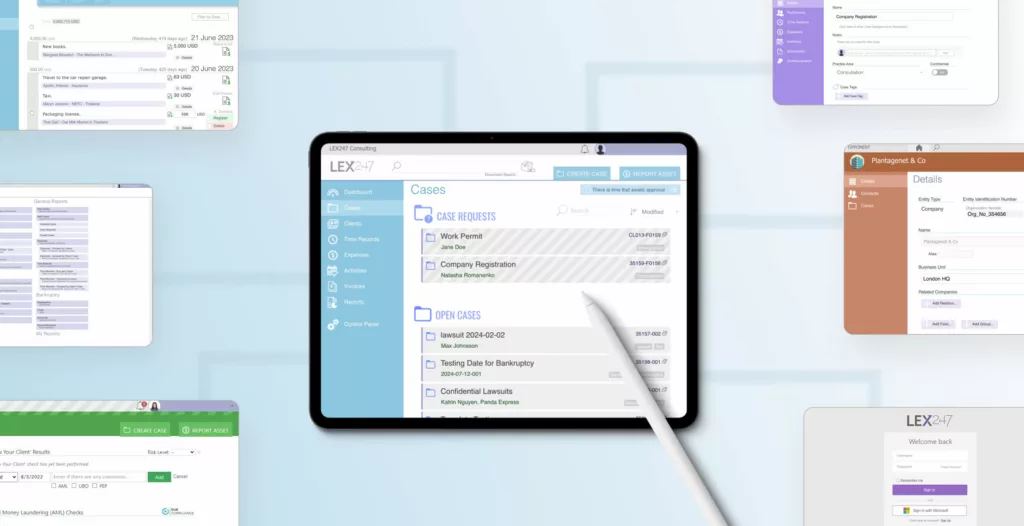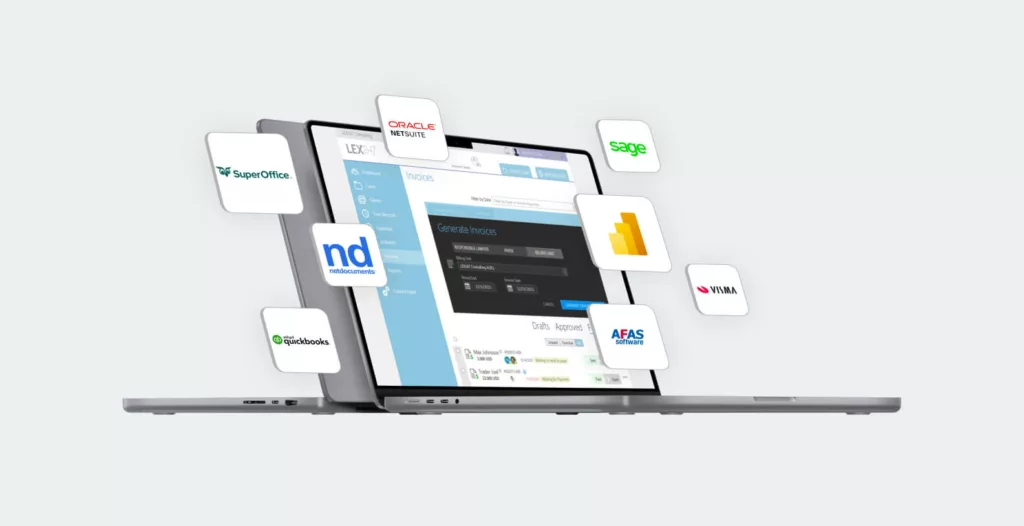Increasingly, law firms are switching to cloud-based services to streamline their workflows, cut operational costs, and improve client experience.
Most traditional lawyers use a cloud platform in some part of their operations, whether it is Dropbox for file management or QuickBooks for billing.
According to the American Bar Association, 52% of law firms in 2017 use some type of cloud-based software for their firm.
Even multinational firms with thousands of lawyers across multiple countries are transitioning from on-premise solutions to cloud computing solutions.
However, the adaptation of specialised for the legal industry cloud-based software still has room to grow.
The vast majority of lawyers still only use consumer-grade cloud solutions.
So why are not all law firms operating in the cloud?
Law firms hold a lot of sensitive client data, making them a lucrative target for hackers looking to gain access to a law firm’s data and hold it ransom.
Many practitioners believe that storing data locally reduces the risk of unauthorized access.
There have been many high-profile security breaches of cloud platforms, which have affected the public’s belief in cloud security.
However, it is worth noting that most security breaches do not occur due to security vulnerabilities in the cloud but due to some kind of human error.
The truth about cloud computing for the legal industry
The changing landscape of the legal industry and the rising challenges of maintaining an on-premise IT strategy are leading more and more law firms to think about a cloud-based IT alternative.
Lawyers are facing increasing pressure from clients who want more for lower rates and stiff competition from other law firms.
These and many other factors have led them to seek better solutions in cost reduction, productivity increase, customer acquisition and retention, and workflow optimization.
These trends have pushed lawyers to switch from on-premise solutions to cloud-based platforms.
On-premise solutions are also called legacy systems:
- They often require hours of support and training
- Cost thousands per licence
- Are difficult to implement
- Security updates are slow
- Are often unreliable and glitchy
Cloud legal practice management solutions, like LEX247, align perfectly with the challenges of a modern law firm.
This is the reason why the percentage of lawyers using cloud-based software jumped from 38% in 2016 to 52% in 2017, the highest growth ever.
What are the benefits of the cloud?
Cloud computing for law-related tasks offers many benefits that have a proven and measurable effect on the growth and profitability of a law firm.
Easy access from anywhere
As opposed to on-premise software, cloud IT solutions allow access and management of your law firm from anywhere, anytime. Whether it is a laptop, smartphone, or tablet, the whole firm’s data can be securely accessed remotely, as long as there is an internet connection.
24/7 Availability
With a cloud-based legal practice management solution, there is no need to head back to your office, sift through documents, and find the one you are looking for.
And what happens if you forget a document in the office but it is urgently needed early the next morning? Mistakes like these happen even to the best of the best, you are human and a very busy one, so it is only natural.
By using the cloud, all your files, appointments, client data, and more are easily accessible, even at 3 a.m. on a holiday.
Low cost of entry and predictable monthly expenses
Keeping operational expenses low, reducing overhead costs and time spent on admin tasks can have a direct impact on your business’s bottom line.
On-premise solutions require heavy maintenance, expensive equipment prone to failure, a dedicated IT expert, training and onboarding of new employees, and frequent backups.
On-premise software can be compromised much easier than cloud-based platforms.
For example, if a virus or another malicious program affects your law firm’s computers, it is possible that it can affect your locally stored data, as they are directly connected to your computer.
Taking all these factors into consideration, costs can rack up fast compared to a monthly fee of less than $50 for a cloud-based solution.
Quickly up and running
Cloud-based law firm management platforms are usually easy to set up and get started.
Compared to the usual weeks or even months required to fully set up an on-premise system, signing up for a cloud SaaS can be done outside of working hours, doesn’t require getting on the phone with a salesperson, and in most cases offers a free trial for you to test the platform.
Many of LEX247’s users are from large enterprise law firms who had never used a cloud-based all-in-one legal practice management solution before.
Once they tried the system, they couldn’t believe how easy it was to use and learn.
Moving existing data from on-premises or other platforms is easy and straightforward.
At LEX247, for instance, we offer free migrations as part of all of our existing plans.
Robust data backup and recovery
A common misconception about cloud-based solutions, especially for the legal industry, is that you get locked in the same way you get locked in the Apple ecosystem, for example.
Once you invest a lot of time and money purchasing apps, music, movies, etc., it is very hard to justify the cost of switching to an Android device.
This couldn’t be further from the truth in this case.
Exporting or migrating all existing data can be done automatically and painlessly if the user requests it.
Eliminate IT and software management requirements
A cloud-based IT solution is supported by modern, scalable, and secure server infrastructure. All that is needed for access is a device with an internet connection.
There is no in-house cost involved in the maintenance of these servers, and there is no need for software installations. All technical aspects of maintaining and updating the platform are handled by the software operator.
Furthermore, with cloud IT solutions, there are no concerns about compatibility issues with other software used internally.
There is no need to use one software for accounting, another for case management, and another for time tracking.
Cloud legal practice management solutions natively integrate with the legal industry’s most used software.
LEX247 integrates with Office 365, Dropbox, QuickBooks, NetDocuments, and much more so that there is no need to switch between different platforms for different functions.
Instead, the whole firm’s workflow can be under one interface for ease of use and increased efficiency.
Enhanced security and compliance
Cloud computing platforms have multiple layers of protection in place to make sure their clients’ information is protected against both cyberattacks and physical breaches.
Most programs offer multi-factor authentication for protection against unauthorized access, even when employees are accessing the cloud from various places and devices.
Compliance with the latest legislation, such as the GDPR, becomes easier to achieve when using a cloud-based IT solution, as most of the regulatory compliance is already handled by the data operator.
Cloud-based legal practice management solutions offer robust rights and user access management. As a business owner, you can always give or restrict access to your employees and always be up to date on who is accessing what within your organization.
Improved client experience and satisfaction
An increasing number of law firms are enjoying cloud computing IT solutions to boost their customer acquisition and retention.
Many existing legal industry solutions offer a client portal that allows you to share documents with your clients in a secure environment.
There is no need for a never-ending exchange of emails or the risk of unauthorized access to sensitive client data.
Best practices when moving your firm to the cloud
When you place your trust in the cloud, you’re putting your confidence in the company that oversees the platform you are using.
There are many software providers for the legal industry that use the term “cloud,” but are very far from being cloud-based software providers.
In addition, there are a few that don’t fully comply with all the data privacy regulations or meet all the security requirements needed for the legal industry.
As a law firm, your customers give you highly personal and confidential information.
A data breach will probably cost you not just financially but also your reputation and your client relationships.
Just because a piece of software allows for remote access to your firm’s data through a mobile device doesn’t necessarily mean that it is a cloud-based solution.
To guarantee the security and safety of your files and data, be sure to follow cloud security best practices and make sure that your cloud provider meets all the compliance standards.






